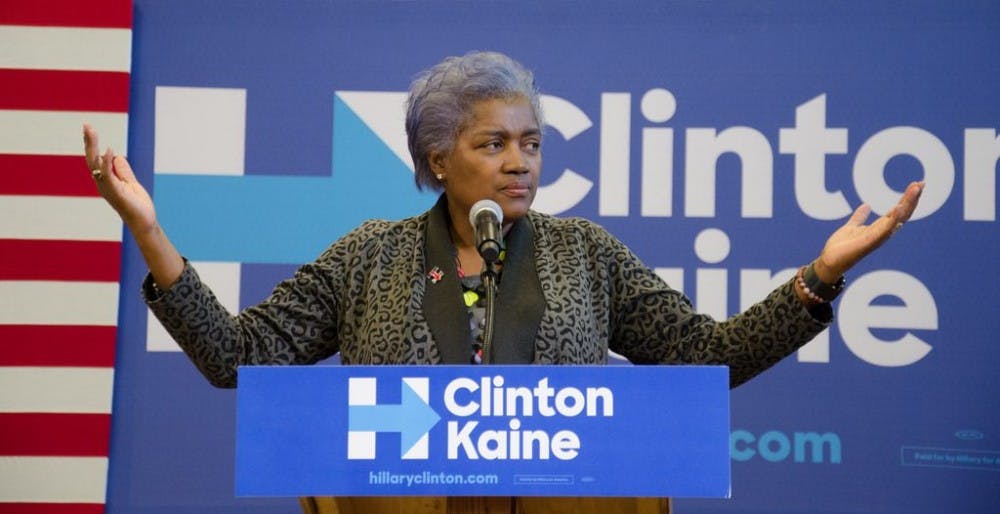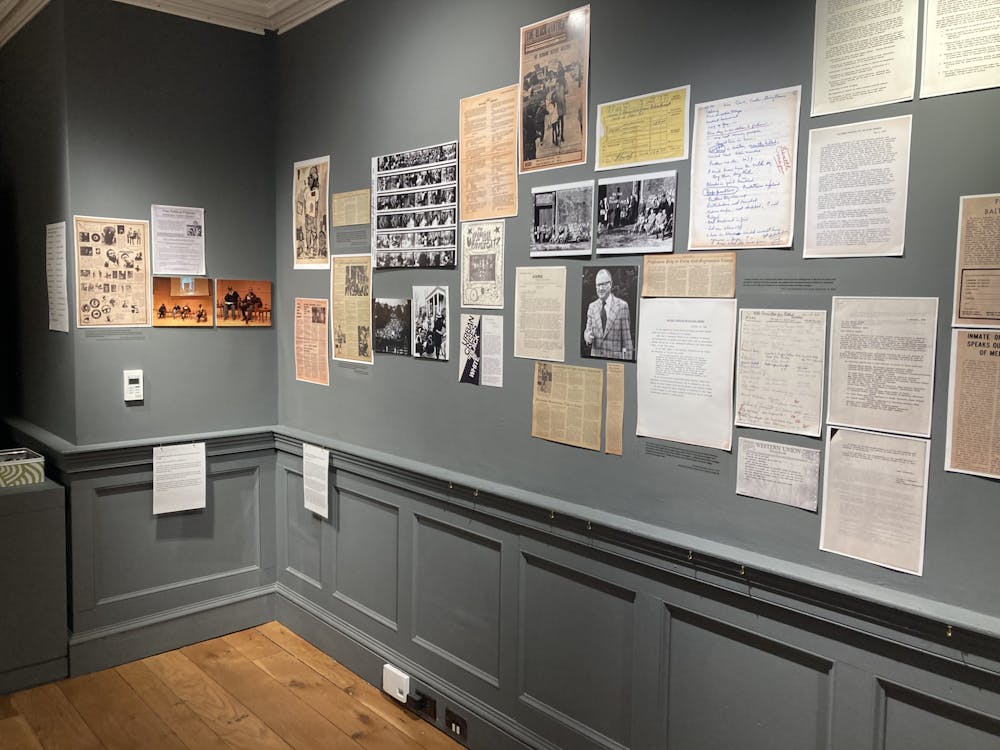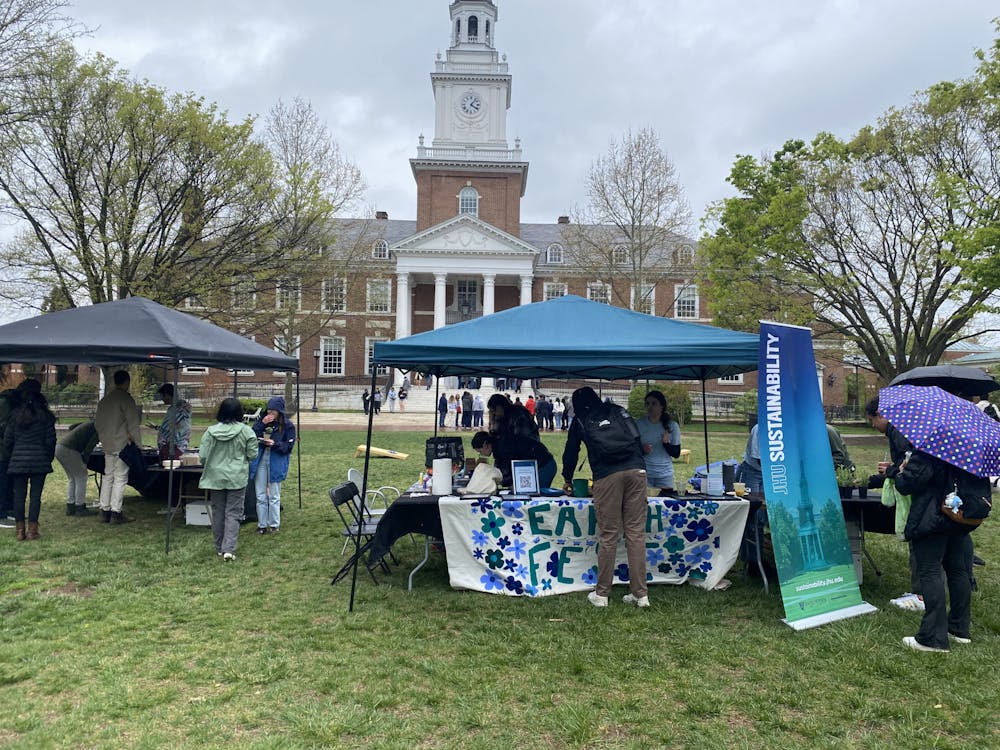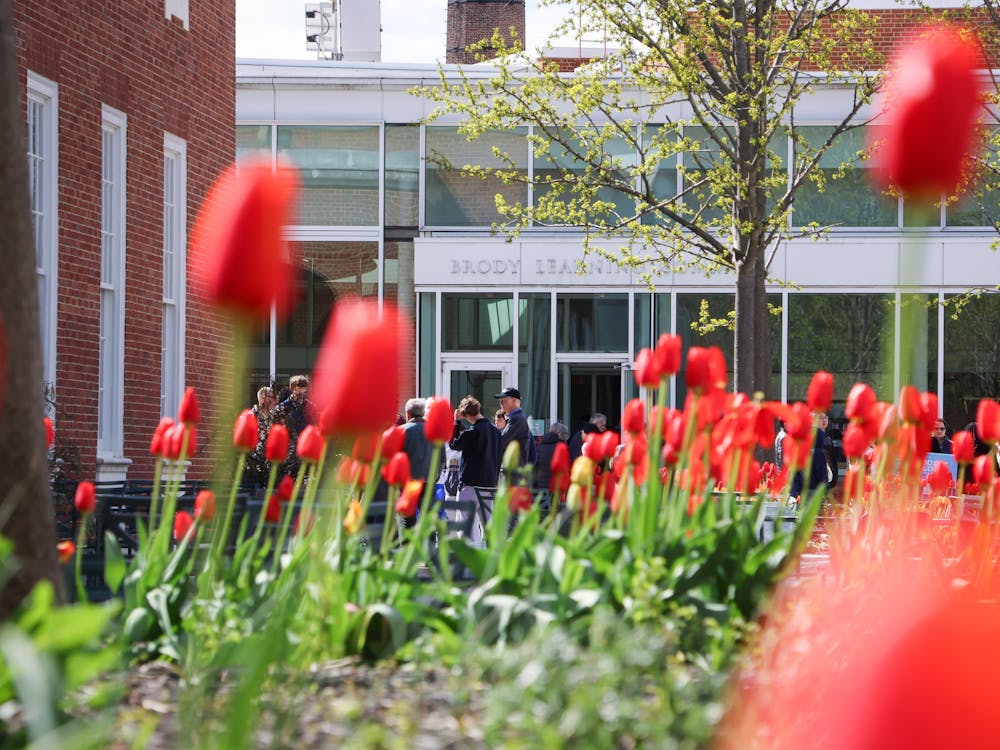With the Republican Party controlling both houses of Congress and the presidency, the Democratic Party is evaluating the next steps they should take in response to the Trump administration.
Last Friday, Feb. 10, the interim Democratic National Committee (DNC) Chairwoman Donna Brazile spoke with a group of progressive student group leaders about the Party’s future.
Roughly 20 students participated in the discussion, representing groups like Voice for Choice, Students for Environmental Action (SEA) and Students for Justice in Palestine (SJP), among others.
The Hopkins College Democrats invited all the groups and those who responded had the opportunity to attend. They organized this event with one week’s notice after being told that members of the DNC would be coming to Baltimore as part of a nationwide “listening tour.”
Students were given the opportunity to question and challenge the DNC’s actions this past election cycle. This discussion was closed to the public and the press per the DNC’s request.
President of Hopkins College Democrats Emma Cook said Brazile emphasized that now was the time for people to rally behind the party and not necessarily the time for the party to reach out to its base.
“She talked a lot about winning young people back,” Cook said. “She sees it as young people need to participate and that it’s not necessarily the Democratic Party’s job to please, in order to have young people get involved.”
Freshman Divya Baron, who worked on Hillary Clinton’s campaign as a fundraising intern, felt that Brazile’s message resonated with her.
“I felt like people were rehashing the same thing over and over again — about how so many people feel disenfranchised by the party and what the party was going to do to fix that,” Baron said. “The answer that Chairwoman Brazile gave was that there should be a seat at the table for you and if there isn’t, you have to create one for yourself... I very much believe that getting involved is the most important message.”
A criticism of the Democratic Party this past election cycle was that there was a certain disconnect between the Party and the people. People often complain that members of the DNC preferred Hillary Clinton as the Democratic candidate over Senator Sanders. Cook explained how that disconnect was still evident when some students spoke with Brazile.
“There is definitely still that wall between young people and college leaders and the Democratic Party that needs fixing, and I definitely think you could feel that in the room,” she said.
Senior Andy Ingersoll, vice president of the SEA, elaborated on this disconnect.
“They don’t have a plan to unify the party, and they’re hoping that it will either just become unified or that the problem will go away,” he said. “The activists want the DNC to have a big shift towards them, and the DNC wants the activists to have a big shift towards them. And neither seems to be entirely willing to meet in the middle.”
Ingersoll explained how Brazile was defensive against any criticism of the DNC.
“There were a number of times where people would push her on specific things related to the hacks, and she was very quick to categorize the DNC as a victim and not admit any fault,” he said. “I think that rubbed people the wrong way.”
Baron defended Brazile and the DNC, saying that people should recognize that the party has limitations on what it can achieve.
“The DNC doesn’t really have any power. It does fundraising and encourages people to run and supports them as much as they can and it writes the party platform once every four years,” she said. “It’s not like it’s going to be able to pass laws or bring in any grand reforms. It is an amalgamation of thoughts of all the different parts of the Democratic Party which is a very diverse group of people, and I don’t think people realize this.”
Student expectations of the Democratic Party were another point of discussion. Many students during the meeting explained how they wanted the party to follow the example of certain Democrats with whom they identify.
“A bunch of people in the room talked about how they liked [seeing] certain individual Democrats... at, for example, the Dakota Access Pipeline protests and at the airport protests,” Cook said. “A lot of young people want to see the party in those spaces as opposed to individual Democratic leaders.”
While Cook acknowledged that Brazile gave unsatisfying answers to the students at times, she sympathized with Brazile, saying that the DNC chairwoman has to balance many different expectations.
“I felt like it was constructive,” Cook said. “But it was hard for her to give a satisfying answer, and it is a hard situation in general because the DNC has trouble taking blame for certain events or party ideologies, and it’s hard to propose a solution to certain problems as a party.”
Students also criticized the decision to not make the event public. Co-Chair of Students of a Democratic Society, senior Corey Payne, received an invitation to attend the event but declined to attend after hearing that it would require a background check.
“This was one of the most restrictive meetings I have ever been invited to,” Payne said. “I had no qualms about saying no because it represented the entire closure of the Democratic Party to youth, progressivism and opposing ideologies.”
Cook spoke of how she asked the DNC for the event to be public but they declined.
“I also thought it was a great idea [for the meeting to be public] and they basically said, no it can’t be public, it needs to be a limited number of people and leaders of student clubs,” she said. “I was also kind of disappointed in that personally.”
Baron justified the private meeting and vetting process, saying that it was an efficient way to guarantee security of high-level party officials. She said that the information they were asked to provide was minimal compared with the Clinton campaign’s vetting process for fundraisers and other events.
“It didn’t seem like a very substantial [vetting process],” she said. “Logistically, if Hopkins was a last minute stop, I can see why it wouldn’t have been public.”
Cook elaborated on the Democratic Party’s relationship with the Hopkins College Democrats.
“While I think the party informs some of our events and our choices as a club, it’s not like we are looking at the party rules and platforms all the time to develop our own ideas,” she said. “It’s very much as a bunch of people who identify as Democrats... We are aligned with the party, but there’s some flexibility in there as individuals and as a group.”
















Please note All comments are eligible for publication in The News-Letter.